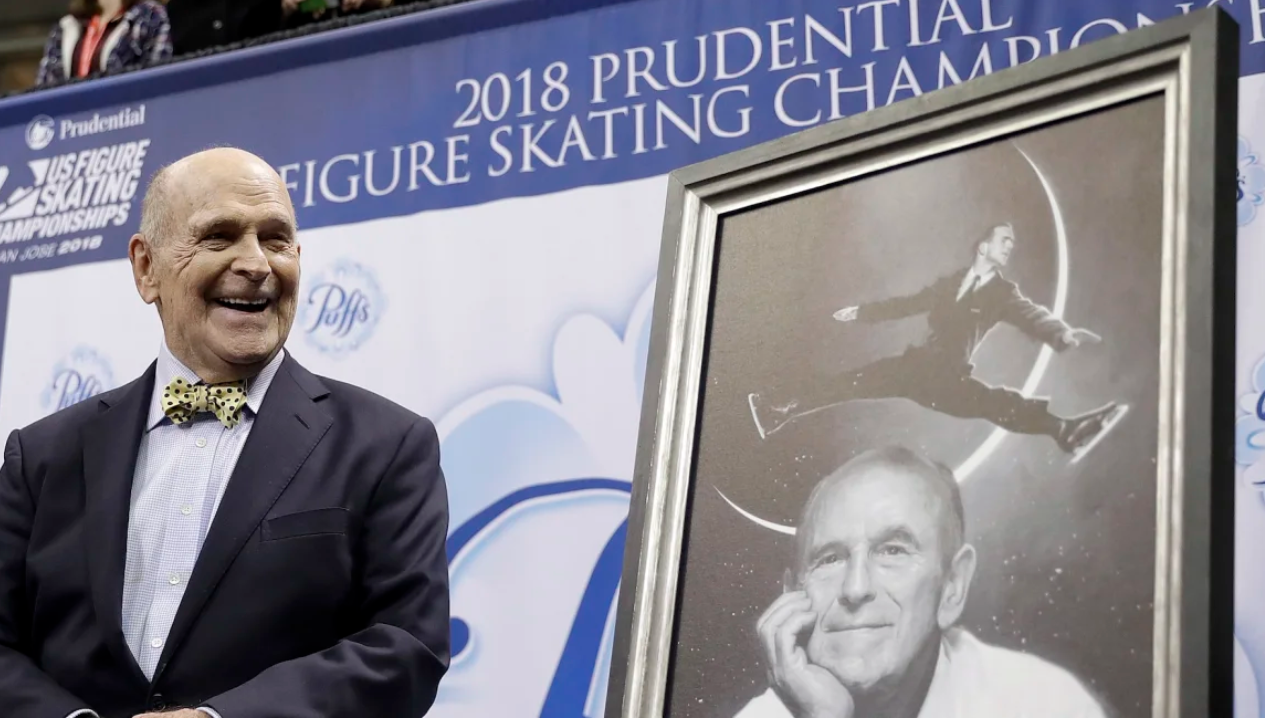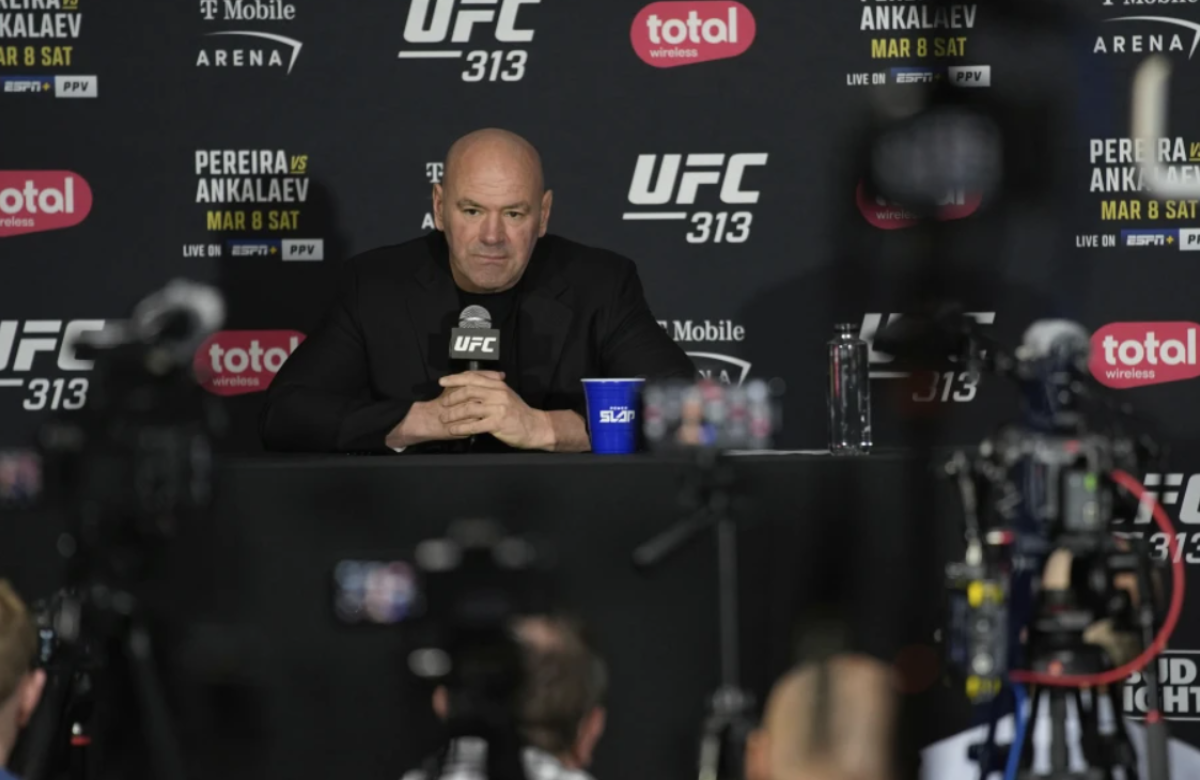Dick Button, widely regarded as the most accomplished men’s figure skater in history, passed away Thursday at the age of 95. His son, Edward, confirmed his death, though a cause was not provided.
Button was not only an Olympic gold medalist and five-time world champion but also a key figure in the development and promotion of figure skating as a sport. His influence extended beyond the rink, as he worked as an entrepreneur and broadcaster, playing a pivotal role in transforming figure skating into a mainstay of the Winter Olympics.
“Dick was one of the most important figures in our sport,” said Scott Hamilton. “There wasn’t a skater after Dick who wasn’t helped by him in some way.”
Button’s legacy began after World War II, when he became the first U.S. men’s champion at just 16 years old in 1946. He then went on to win the gold medal in men’s figure skating at the 1948 St. Moritz Olympics, where he performed the first-ever double axel in competition. He was the first American to take the men’s gold in Olympic figure skating.
Reflecting on his career, Button humorously admitted that his famous double axel wasn’t perfect: “By the way, that jump had a cheat on it. But listen, I did it, and that was what counted.”
Button’s dominance in the sport extended throughout the 1940s and 1950s. He became the first figure skater to win the prestigious Sullivan Award in 1949, with no other figure skater winning the honor until Michelle Kwan in 2001.
In 1952, while studying at Harvard, Button secured a second gold medal at the Oslo Olympics and made history again by completing the first triple jump (loop) in competition. He then went on to claim a fifth world title before retiring from amateur competition, marking the end of an era in the sport.
Having earned a law degree from Harvard in 1956, Button later enjoyed a successful career in professional skating, including performances in the Ice Capades. Despite stepping away from amateur competition, he remained closely connected to the world of skating, where his contributions would leave an indelible mark.
Dick Button, an Emmy Award-winning figure skating analyst, became a key figure in educating audiences about the sport, often breaking down both the fundamentals and the intricate details of performances. His candid commentary helped viewers understand a sport that was unfamiliar to many, and he became a staple on ABC’s Wide World of Sports, much like Jim McKay and the iconic image of the ski jumper tumbling down the slope.
“Dick Button is the custodian of the history of figure skating and its quintessential voice,” said 1988 Olympic champion Brian Boitano in Button’s autobiography. “He made the words ‘lutz’ and ‘salchow’ part of our everyday vocabulary.”
Button’s broadcasting career began after the tragic 1961 plane crash that killed the entire U.S. figure skating team en route to the world championships, forcing the event to be canceled. Button convinced ABC Sports executive Roone Arledge to broadcast the 1962 world championships on Wide World of Sports, and soon after, he joined the network as a commentator.
Coincidentally, Button’s death occurred at the same time as another tragedy in the skating world—the crash of an American Airlines flight that collided with an Army helicopter over the Potomac River, killing 14 people, including two teenage figure skaters, their mothers, and two former world champions who were coaching at the Skating Club of Boston. Button, who skated for the Boston club and maintained close ties to it, had a lasting impact on the club, with a trophy room named in his honor.
In addition to his work as a commentator, Button created opportunities for skaters to earn a living after their competitive careers. He organized professional skating events for TV, which attracted big names like Scott Hamilton, Torvill and Dean, Kristi Yamaguchi, Kurt Browning, and Katarina Witt. He also ran Candid Productions, which produced TV specials such as Battle of the Network Stars. Though he occasionally dabbled in acting, skating remained his true passion.
“Dick Button created an open and honest space in figure skating broadcasting where no topic or moment was off-limits,” said Johnny Weir, a three-time U.S. champion and NBC Sports figure skating analyst. “He told it like it was, even when his opinion wasn’t a popular one. His zingers were always in my mind when I would perform for him, and I wanted to make him as happy and proud as I would my coaches.
“I think that is something very special about commentating figure skating. As an athlete, we rarely have an opportunity to speak, and we rely on the TV voices to tell our story for us. Nobody could do it like Mr. Button.”















